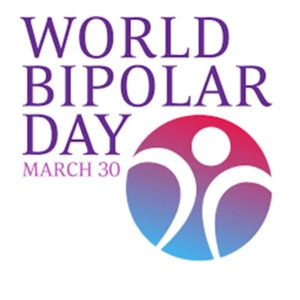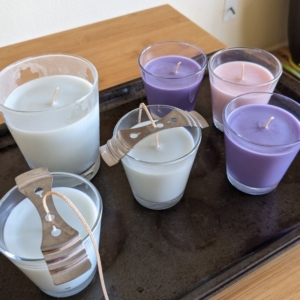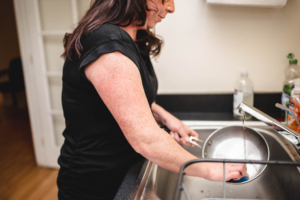World Bipolar Day
 World Bipolar Day is celebrated each year on March 30, the birthday of Vincent van Gogh, who was diagnosed years after his death in 1890 as likely having had bipolar disorder (BD).
World Bipolar Day is celebrated each year on March 30, the birthday of Vincent van Gogh, who was diagnosed years after his death in 1890 as likely having had bipolar disorder (BD).
BD, formerly called manic depression, is a mental health condition that causes extreme mood swings including emotional highs (mania or hypomania) and lows (depression).
World Bipolar Day intends to raise awareness of bipolar disorders and eliminate social stigma. Through international collaboration, the goal of World Bipolar Day is to provide accurate information about bipolar disorders that will educate and improve sensitivity toward the illness.
World Bipolar Day is an opportunity to show those living with the day-to-day challenges of this condition they are not alone, they have your support, and that there is always hope.
It’s a day when the BD community can come together to celebrate with friends, family, research communities, and organizations. World Bipolar Day is an opportunity to remember our strength, our resilience, and our successes, as well as acknowledge that much work remains ahead.
Bipolar disorder may cause dramatic shifts in a person’s mood, energy, and ability to think clearly. People with bipolar experience high and low moods—known as mania and depression—which differ from the typical ups and downs most people experience.
The average age of onset is around the age of 25, but it can occur in the teens, or more uncommonly, in childhood. The condition affects men and women equally, with about three percent of the US population diagnosed with bipolar disorder and nearly 83 percent of cases classified as severe.
If left untreated, bipolar disorder usually worsens. However, with a good treatment plan including psychotherapy, medications, a healthy lifestyle, a regular schedule, and early identification of symptoms, many people live well with the condition.
Symptoms and their severity can vary. A person with bipolar disorder may have distinct manic or depressed states but may also have extended periods—sometimes years—without symptoms. A person can also experience both extremes simultaneously or in rapid sequence.
Several Types of Bipolar Disorders and Related Conditions
Bipolar I disorder: the person had at least one manic episode that may be preceded or followed by hypomanic or major depressive episodes. In some cases, mania may trigger a break from reality (psychosis).
Bipolar II disorder: the person had at least one major depressive episode and at least one hypomanic episode, but you’ve never had a manic episode.
Cyclothymic Disorder or cyclothymia: a person who had at least two years—or one year in children and teenagers—of many periods of hypomania symptoms and periods of depressive symptoms (though less severe than major depression).
Bipolar disorder, “other specified” and “unspecified”: when a person does not meet the criteria for bipolar I, II or cyclothymia but has still experienced periods of clinically significant abnormal mood elevation.
Bipolar disorder is best treated with a combination of medications and psychotherapy. Medications can provide effective treatment during the acute episode and prevent future episodes from occurring. Psychotherapy can help in ways that medications can’t and can be an important adjunct to medication.
The late Colorado Recovery founder Richard Warner dedicated most of his life to fighting the stigmatization of people with mental illness. Colorado Recovery has been utilizing the Warner method to empower adults with mental illness for many years now.
Our program approaches mental healthcare based on a path of self-reliance through developed practiced skills. Recognizing the importance of empowerment for recovery, our non-institutionalized philosophy engages patients in increasing community participation.
Our treatment facility provides services needed to address schizophrenia, bipolar disorder, and other serious mental illnesses. Call us at 720-218-4068 to discuss treatment options for you or the person you would like to help.

 Colorado Recovery approaches mental healthcare based on a path to self-reliance through developing practical skills. Our approach to care is about nurturing an environment of inclusivity, socialization, and community building. Clients are encouraged to take part in activities out in the community to achieve a certain degree of social independence.
Colorado Recovery approaches mental healthcare based on a path to self-reliance through developing practical skills. Our approach to care is about nurturing an environment of inclusivity, socialization, and community building. Clients are encouraged to take part in activities out in the community to achieve a certain degree of social independence. One of the main objectives of the Colorado Recovery program is for patients to achieve a certain degree of social independence.
One of the main objectives of the Colorado Recovery program is for patients to achieve a certain degree of social independence.
